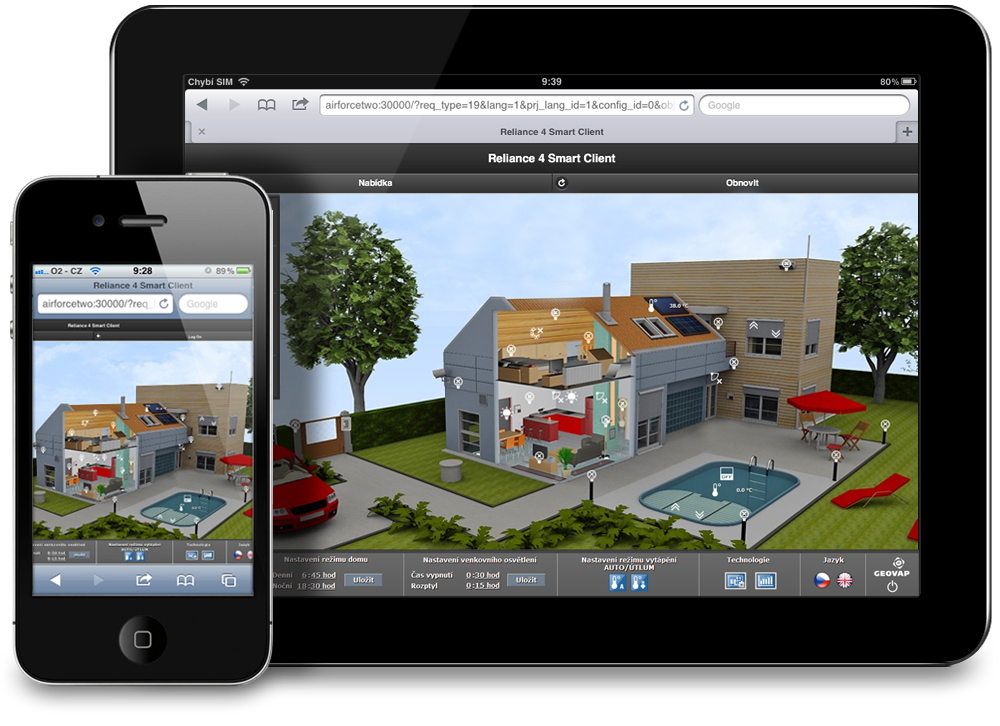Do you ever wonder why a smart home is such a big deal these days? The concept has been around since at least the 1970s. Plenty of TV commercials attests to the then-current idea of a smart home. One that could switch on and manage lighting, heating, and even cooking.
Of course, many of those ideas were quite a stretch of the imagination. Yes, one can forgive the world for getting a bit overexcited after putting a man on the moon. But they weren’t too far off the mark. What is the need to make a smart home when humans have lived so far without one?

The modern smart home isn’t that different from early ideas in certain ways. But there is one very crucial difference. Smart homes today are more or less becoming a reality. And instead of simply relying on mechanization, the modern smart home relies on wireless and digital technology.
Check out Spectrum WiFi prices and get a reliable internet connection. There are several important factors that have contributed to bringing smart homes from the realm of science fiction into workable and sustainable options.
And there are several pressing needs that make smart homes a much more realistic and workable option than ever before. Read on to learn more.
Energy is essential for any country and industry. Businesses, homes, and even vehicles rely on a steady and constant supply of energy sources. Most countries use a mix of resources to generate energy to meet rising energy demands.
These can range from fossil fuels to hydroelectric generation. However, it is now generally understood that these resources are not infinite. And that the way many countries consume them is not sustainable for the planet either. The rise in global temperatures and an impending climate change catastrophe is proof enough.
Certain countries are now examining ways to reduce their energy and carbon footprint. Many of these are making efforts to completely switch to renewable energy sources such as wind or solar power. But this transition will still take some time.
The time that the planet may not have anymore. Therefore additional measures may be necessary. In particular, people who consume energy also need to be more careful of their consumption habits and wastage. Thanks to IoT devices and sensors, smart homes offer a great way to do that.
Smart home appliances like lights, thermostats, and even induction stoves are much more efficient in terms of energy consumption. They can detect and learn your routine to make sure your home automatically uses power only when needed. And thanks to AI and ML, these appliances only continue to get smarter and more efficient.
Read Also:
Of course, it is not just the environment (and everybody in it) that benefits from smart home technology. We just discussed how smart home fittings like smart lights and smart thermostats can help reduce your home’s energy footprint. You also benefit as a direct result of this.
With automated heat and light appliances, you can minimize energy wastage in your home. Or to put it differently, you can create a home with optimized energy consumption. With greater efficiency in how your home uses energy, you can be sure to see a significant decrease in your heating and lighting bills.
21st Century consumers value convenience. This has been a core driving factor behind the success of things like smartphones, e-commerce platforms, Smart TVs, Google, and even logistics providers.
Smart homes offer convenience in terms take away the trouble of manually regulating in-home temperature or managing efficient lighting. Convenience isn’t indicative of laziness. It is simply a more efficient way to do things.
One that saves you time and money to invest in other areas of your life. As a general rule, the more convenient your life is, the more comfortable you are likely to feel. Automated smart home appliances could be a great fit in such a lifestyle.
The rise of permaculture has a lot to do with the increased attention to smart home tech. In a nutshell, permaculture represents a movement based on sustainability. The planet is home to a vast and delicate symbiosis of animals, plants, insects, and other biological matter.
That’s not to mention the unique natural habitats and ecosystems that often trigger a domino-like chain reaction when triggered. In short, nature has a very precise and delicate balance. Decades of industrialization and pollution now threaten the sustainability of this balance.
The permaculture movement calls for examining alternative approaches to life and business based on sustainability instead of profitability. For example, urban farming, self-sustained gardens, and urban “green lungs”.
Residential buildings that optimize rainwater storage for terrace gardens or micro crops. Smart homes present exactly the type of alternative permaculture wants. A home that could potentially not just add sustainability but also create a world that does not have to depend on mass agriculture or industrialization to meet living needs.